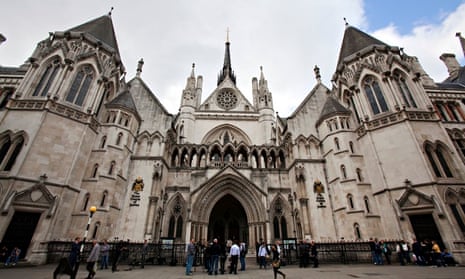This week the court of appeal paid tribute to the work of about 30 law students at Cardiff University for investigative work that led to its decision to overturn the conviction of Dwaine George. The victim, Daniel Dale, died almost instantly as he fled a shooting in the Miles Platting area of Manchester in July 2001. George, then 18 years old, was sentenced to life in prison for the murder, after pleading not guilty.
Now 30 years old, he was released from prison on life licence just over a year ago. People may be astonished to discover that students have any part to play in investigating miscarriages of justice. Well, they do – and they have done so for the past 10 years.
When the Criminal Cases Review Commission (CCRC), the first state-funded body to investigate wrongful convictions in the world, came into being in 1997 after scandals including the Birmingham Six, human rights groups such as Justice dropped casework. They did not want to encroach on the territory of a watchdog whose existence they had campaigned so hard for.
However – unsurprisingly, perhaps – it quickly became apparent that the CCRC alone was not going to solve the problem. To mix metaphors, the watchdog became the court of appeal’s gatekeeper. Anyone claiming to be the victim of a miscarriage of justice now has to apply to the body to have their case referred to the appeal court.
Lawyers, with a few notable exceptions, tend not to go anywhere near these troubling and often intractable cases. There is little public money available – £48.36 an hour for appeal work, a rate that has not increased since 2001 – and it is paid at the end of a case. The latest round of savage legal aid cuts means that the committed few will become fewer. Law students are the last hope for many victims of wrongful conviction.
The pioneering Bristol Innocence Project, launched in 2004, led to the creation of the Innocence Network UK (INUK), an umbrella group that has helped set up 30-plus university-based schemes. The George case represents a hugely significant moment in the innocence movement. It is the first success in the court of appeal in 10 years. Its success, led by Professor Julie Price and Dr Dennis Eady, has come at a critical time.
This summer the INUK disbanded after a unilateral decision by its founder Dr Michael Naughton, and the movement is in disarray. He said: “The reality is that a lot of universities have jumped on the bandwagon because it’s sexy and they can use it as a recruiting tool.” The problems faced by INUK are many and varied – Cardiff Law School, for example, withdrew over concerns about its lack of democracy.
Universities are now considering whether to continue their work, and even what they should call themselves. The name “innocence project” is trademarked by the Innocence Project in New York. INUK members were allowed to use the name as part of their membership.
It would appear that a genuinely radical project has crashed dramatically on the jagged rocks of reality. At the end of 2012 there were 27 projects investigating about 100 cases. However, the CCRC reported that there were only 17 submissions from five universities (six of which were from Cardiff). At the time the CCRC pointed out that since 2005, 266 referrals from the commission had gone back to the courts.
However, universities should not be attacked for taking on cases no one else will, and then failing to get them overturned. There is a bigger problem. According to Cardiff’s Eady, that problem resides at the heart of the appeal process itself. “The greatest problem is the court of appeal’s irrational belief in the infallibility of the jury and its demand for a few neat, precise, new and compelling appeal points rather than an appreciation of the holistic picture.”
Concern over miscarriages of justice, which once so scandalised the great British public, has mysteriously evaporated. Wrongful convictions, with their difficult characters and complex narratives, became an unlikely staple of our broadcasting schedules through the 1980s and the 1990s as a result of pioneering TV programmes such as the BBC’s Rough Justice and Channel 4’s Trial and Error. The BBC pulled the plug on Rough Justice in 2007 but the problems never went away.
Lawyers and campaigners report a growing unwillingness on the part of the court of appeal to engage with these difficult cases. The CCRC, under-resourced and oversubscribed, faces criticism over the variable quality of case review managers, its reliance on desk reviews and an overly deferential approach to the court of appeal. Perhaps what we need is the British version of the US podcast Serial, a Rough Justice for the social media generation.
We also need universities to stay involved. The victims of wrongful convictions have few friends. It would be a disaster if the consequence of the current impasse over innocence work meant that universities simply walked away. I hope they will look to the decision in the Dwaine George case and redouble their efforts.
